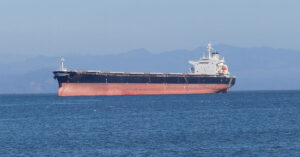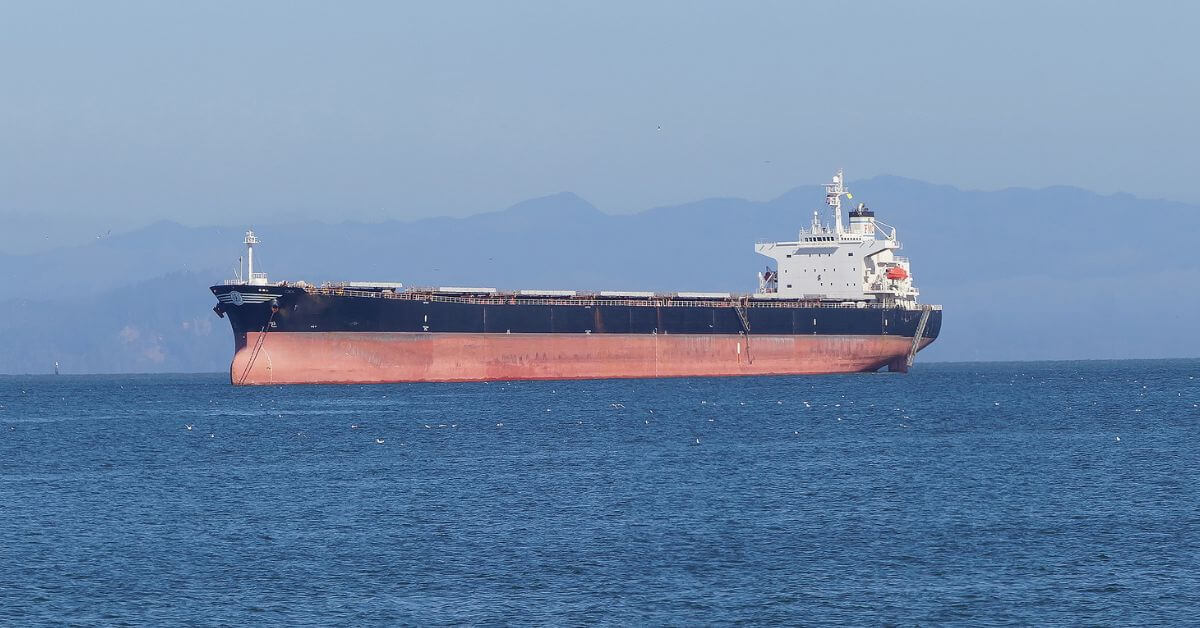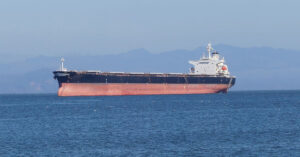
Jan De Nul Builds New Vessel To Protect Critical Subsea Infrastructure
October 1, 2025
WinGD To Launch First Ethanol-Fuelled Marine Two-Stroke Engine In 2026
October 1, 2025

The French Navy is investigating the crude oil tanker Boracay, which is suspected of being part of the so-called “shadow fleet” engaged in the transport of Russian oil in violation of international sanctions. The vessel is currently anchored off the French coast near Saint Nazaire, under naval surveillance.
The tanker, built in 2007, is included in separate sanctions lists by both Britain and the European Union. Earlier this year, Estonian authorities detained the vessel for sailing without a valid national flag.
Shadow fleet vessels are usually older ships, often more than 20 years old, with unclear ownership and insurance. They are commonly used to bypass sanctions and avoid regulatory checks.
MarineTraffic data shows the tanker Boracay left the Russian port of Primorsk on September 20. It sailed through the Baltic Sea, passed north of Denmark, entered the North Sea, and then moved west through the English Channel.
Tracking data shows that a French warship shadowed the tanker after it rounded France’s northwestern tip. Later, the tanker altered its course, heading east toward the French coast, and anchored near Saint Nazaire.
The Brest prosecutor’s office confirmed that a formal investigation is underway after the tanker’s crew failed to provide proof of its nationality and did not follow orders issued by French authorities. This refusal has intensified suspicions about the ship’s activities.
Britain imposed sanctions on the vessel in October 2024, stating it was involved in activities aimed at destabilising Ukraine or benefitting the Russian government by transporting oil or oil products originating in Russia to a third country.
The EU followed with sanctions in February 2025, citing the vessel’s role in carrying Russian crude oil and petroleum products while “practising irregular and high-risk shipping practices.”
The tanker has undergone multiple name changes, a tactic often used in the shadow fleet to evade tracking. In December 2024, the vessel was renamed Boracay, though some shipping databases list it as Pushpa.
Earlier, it was known as Kiwala. Ships retain the same IMO identification number throughout their service, which allows authorities to track them despite name changes.
French naval sources said the vessel remains under close observation as investigations continue to clarify its ownership, registration, and purpose in French waters.
Reference: Reuters
Source: Maritime Shipping News


